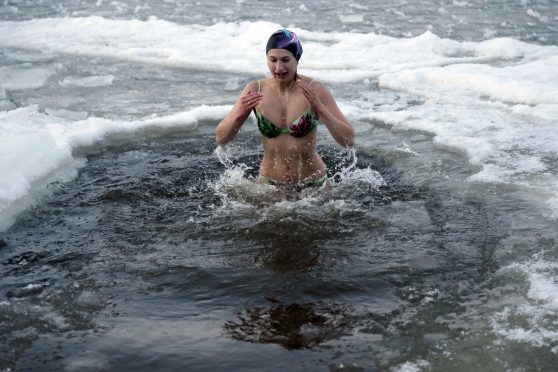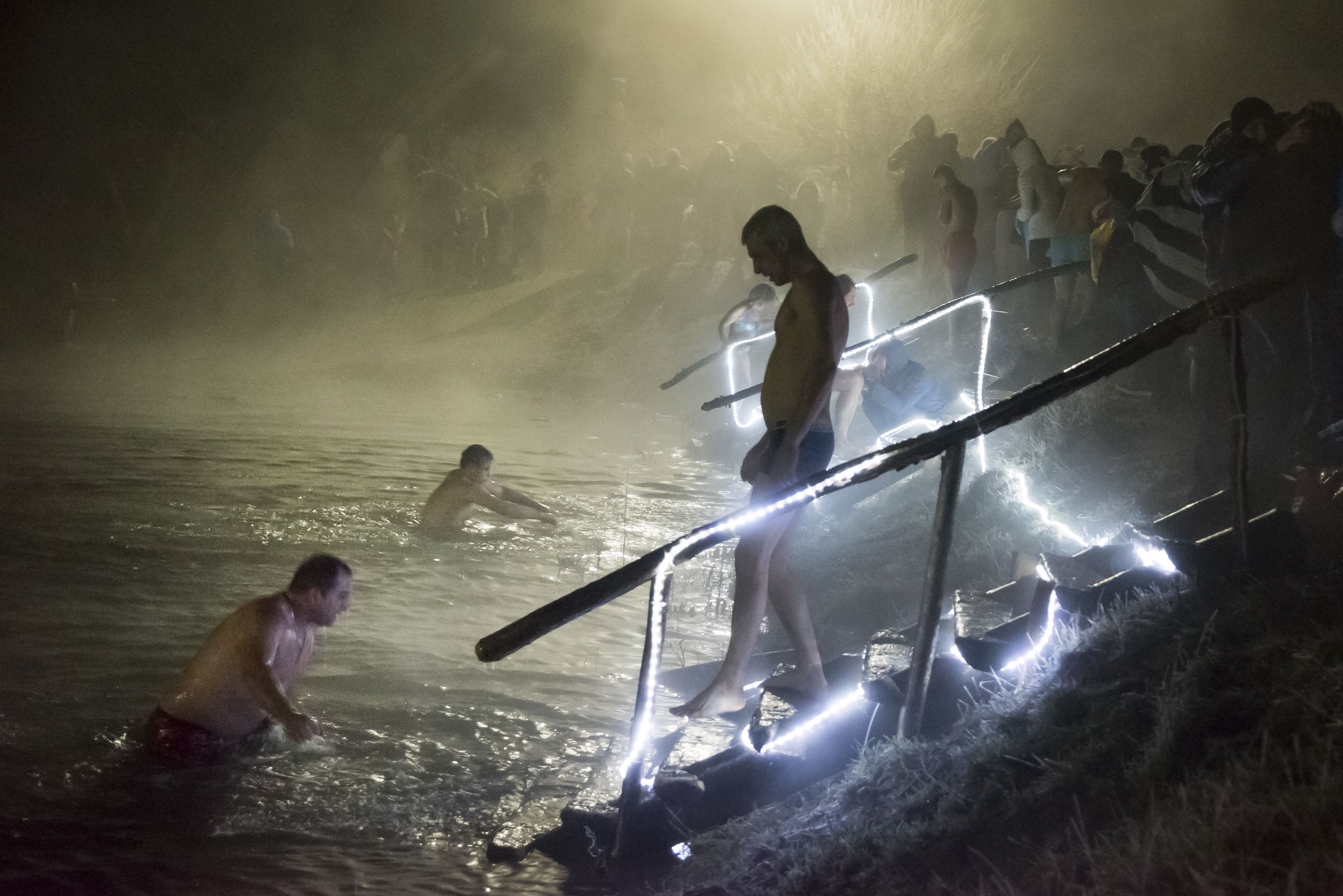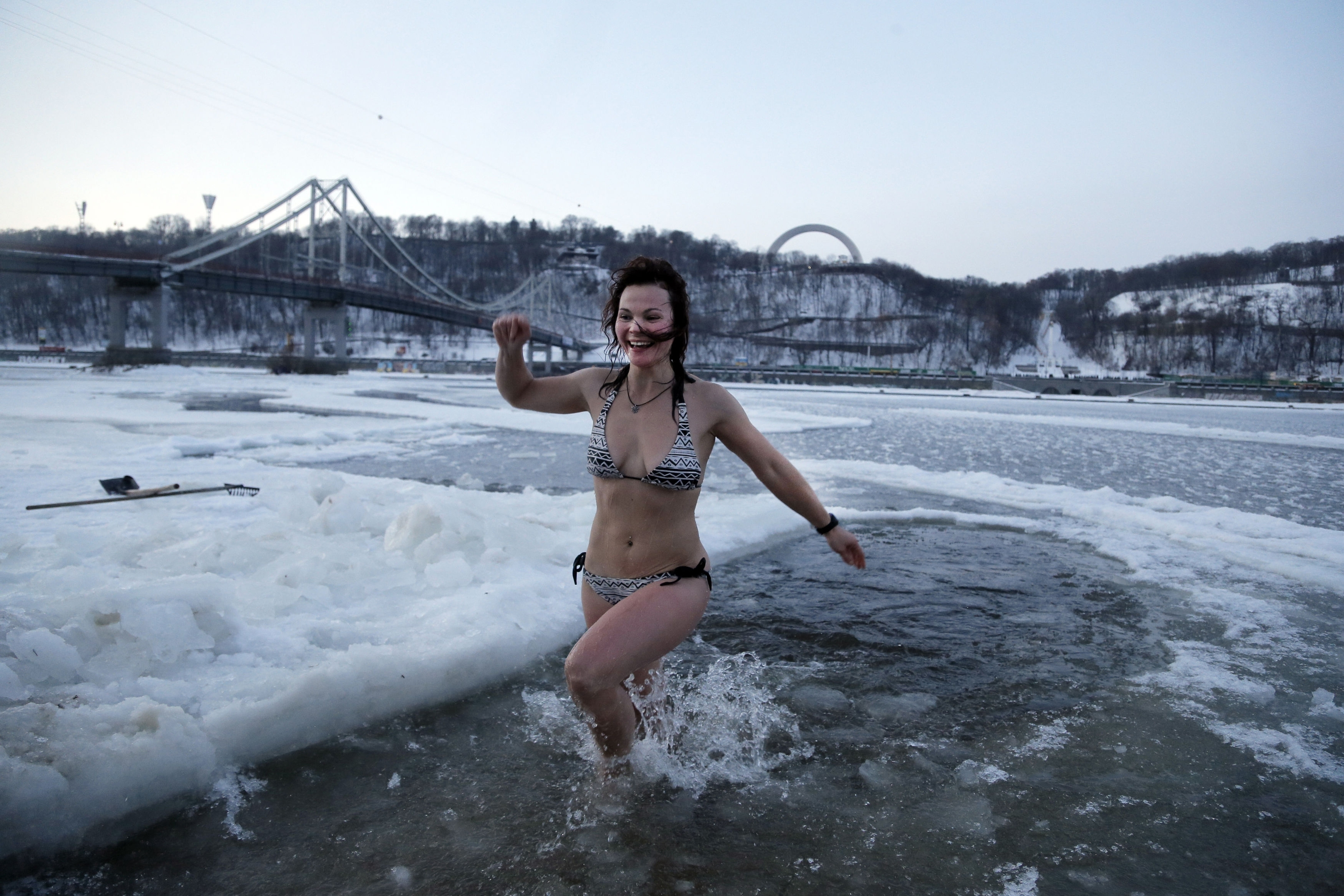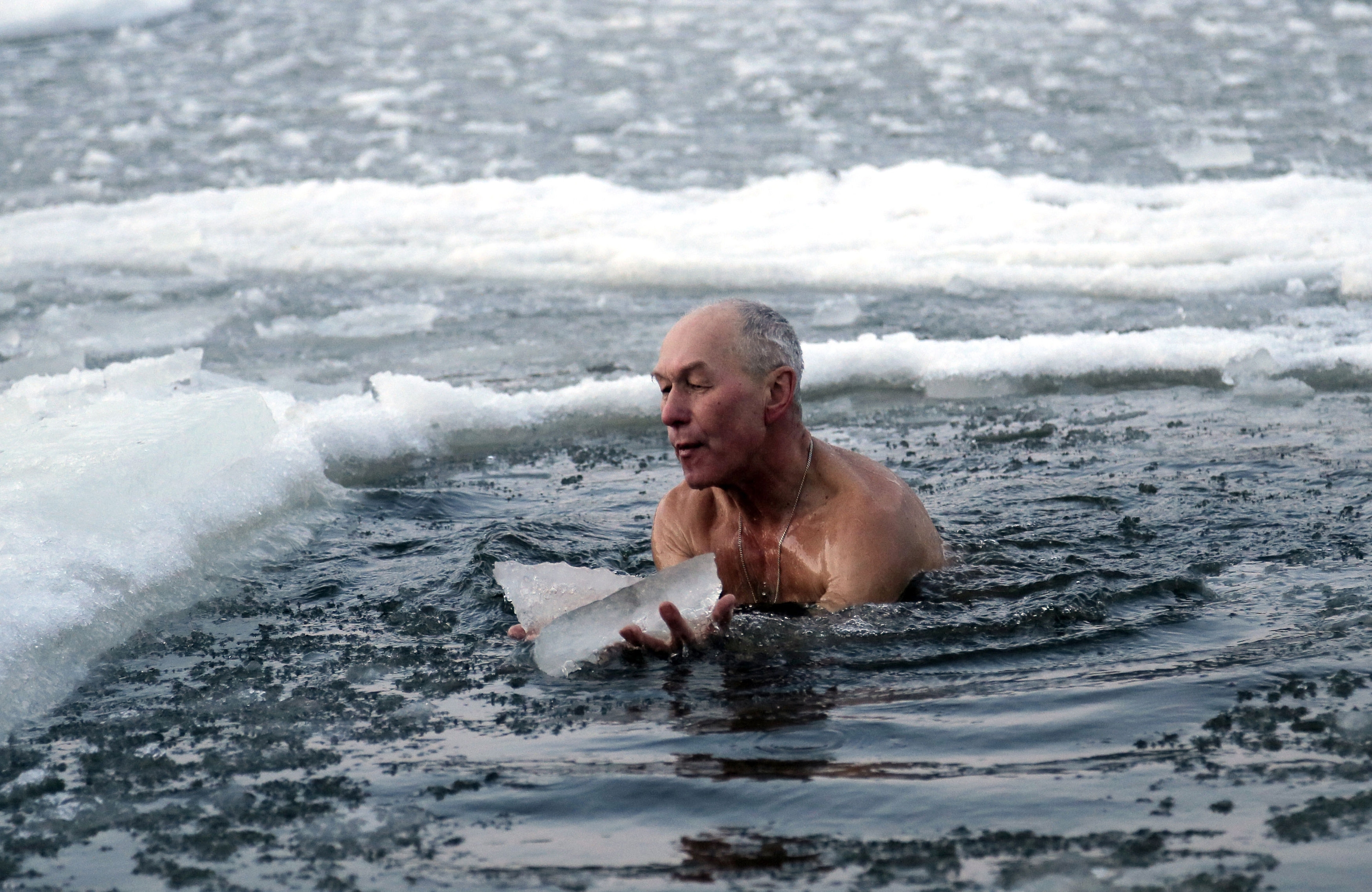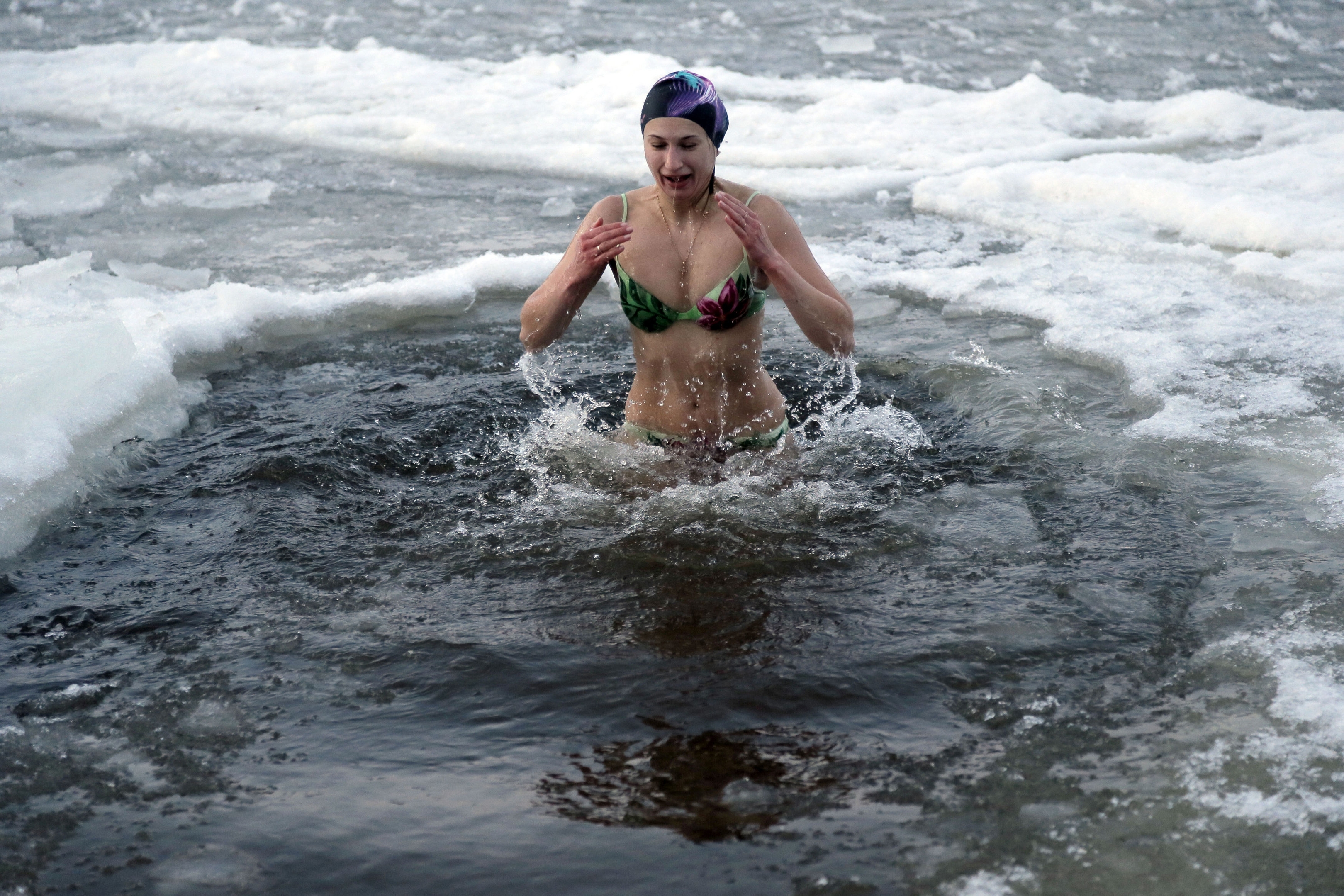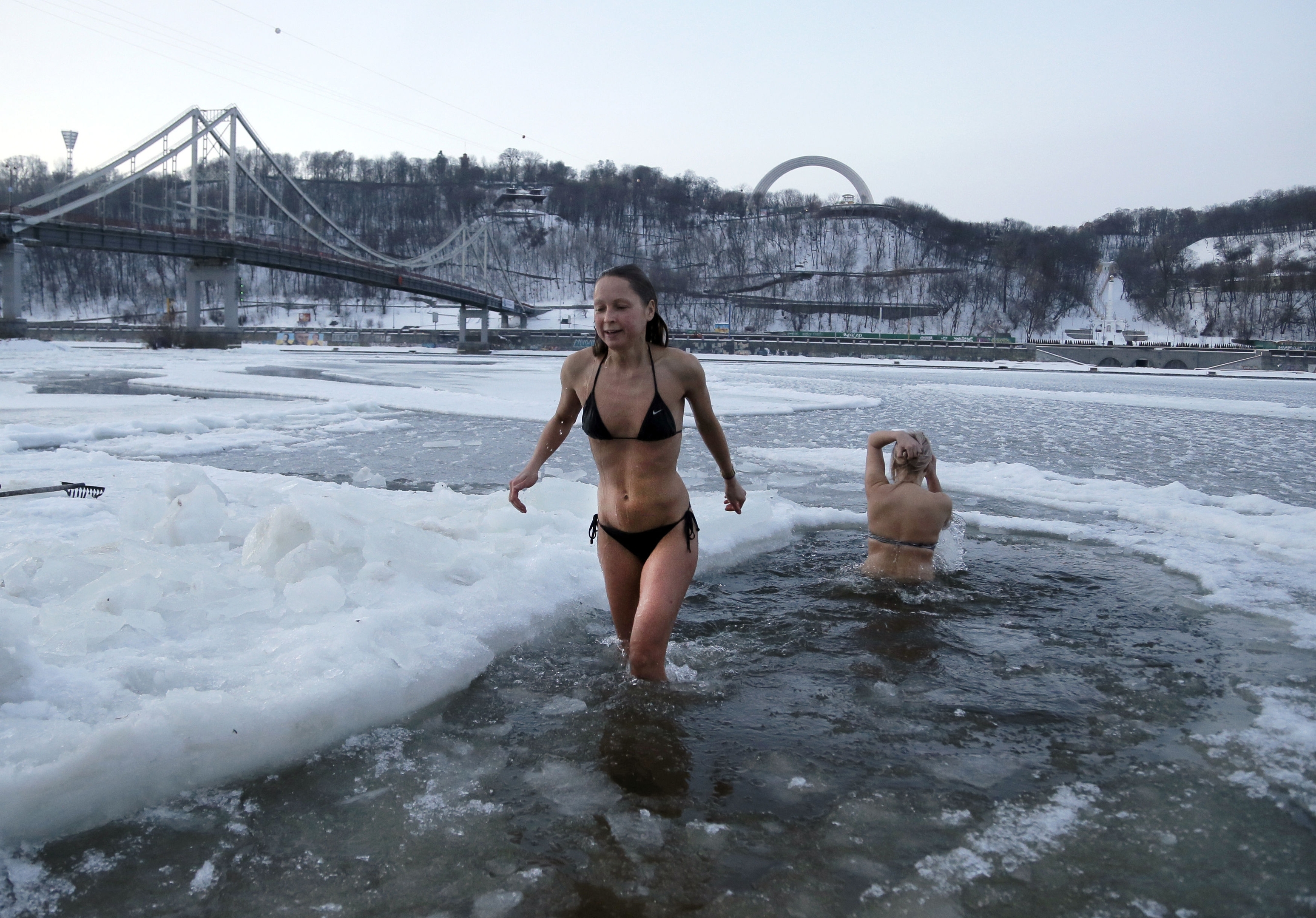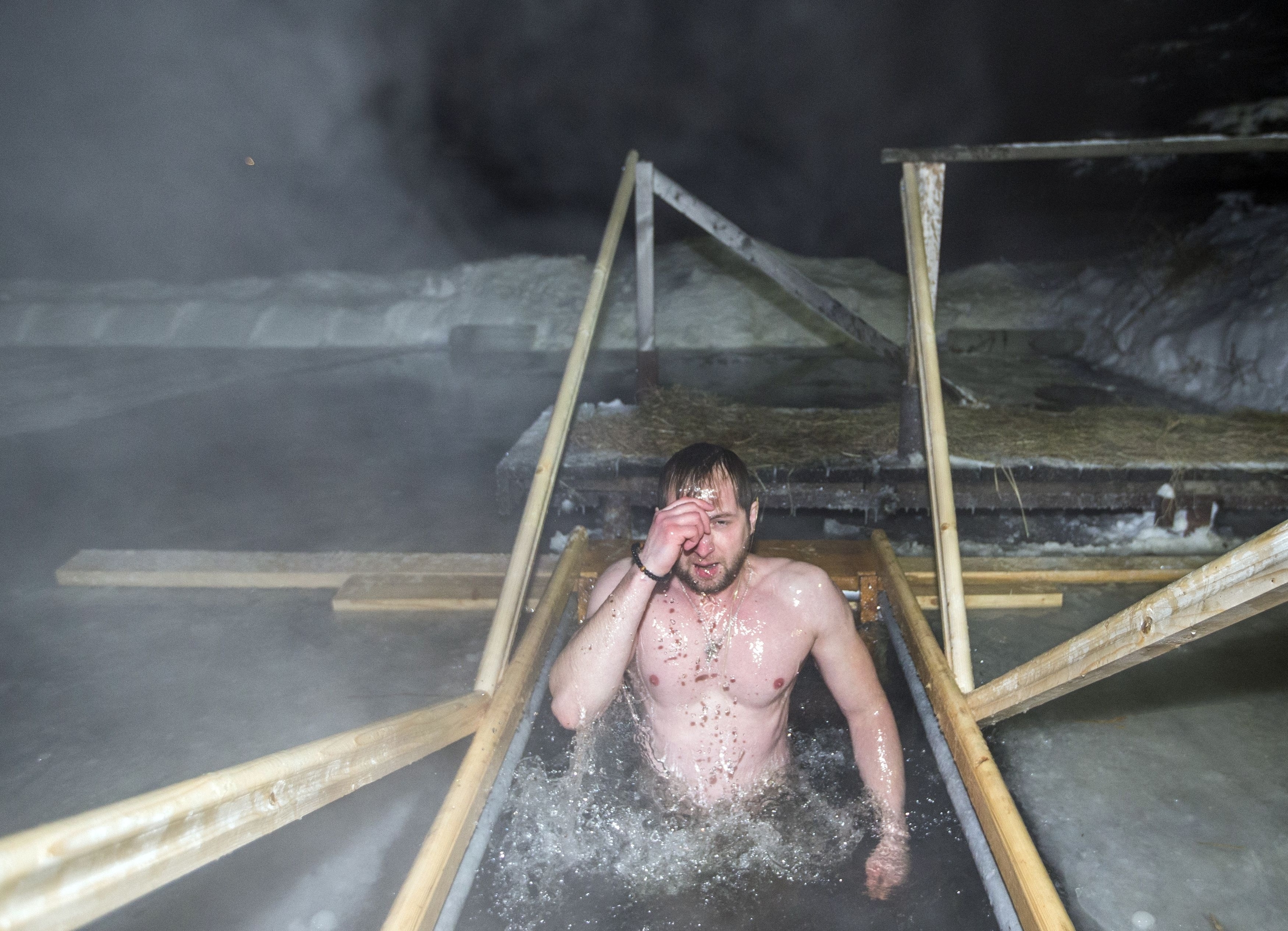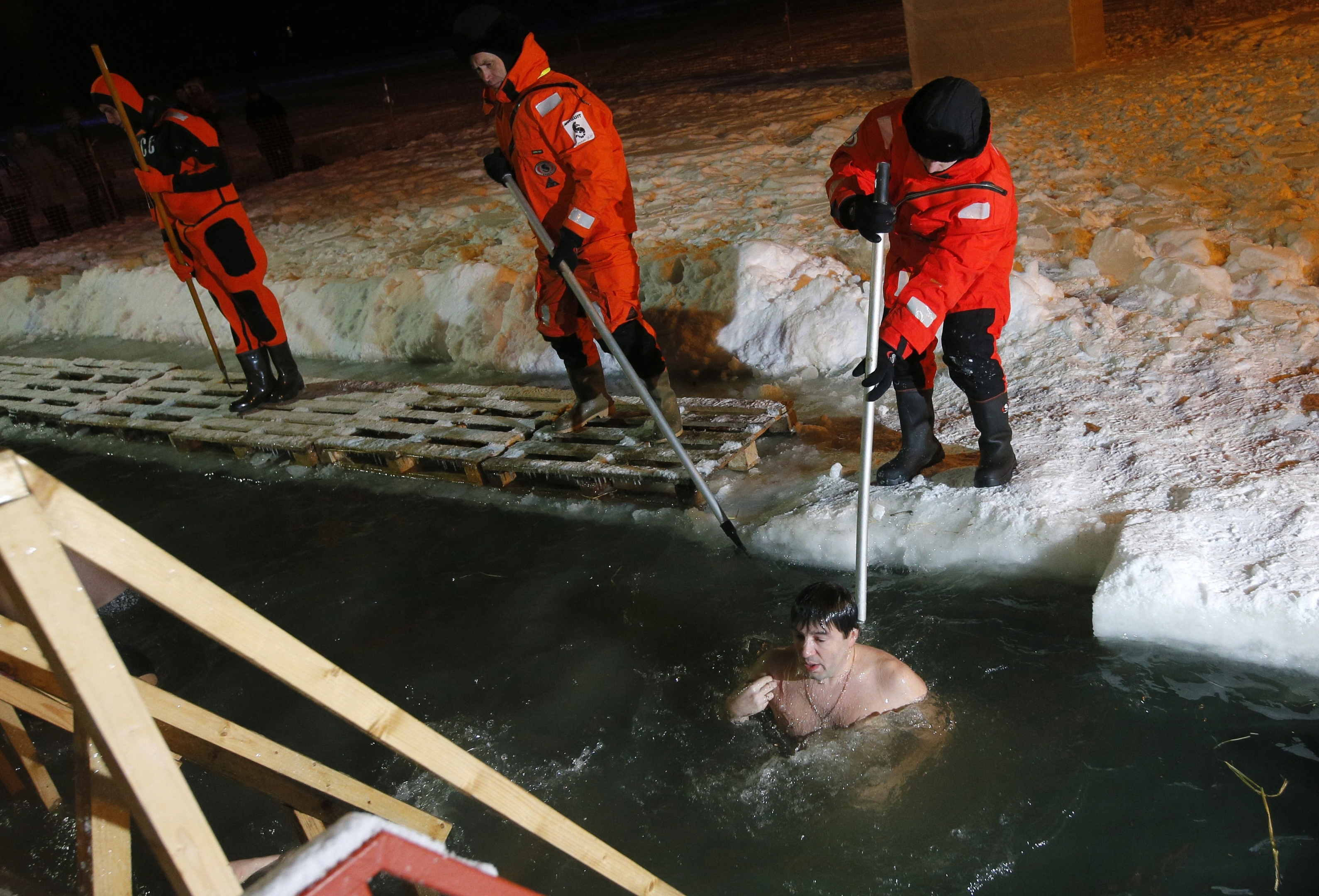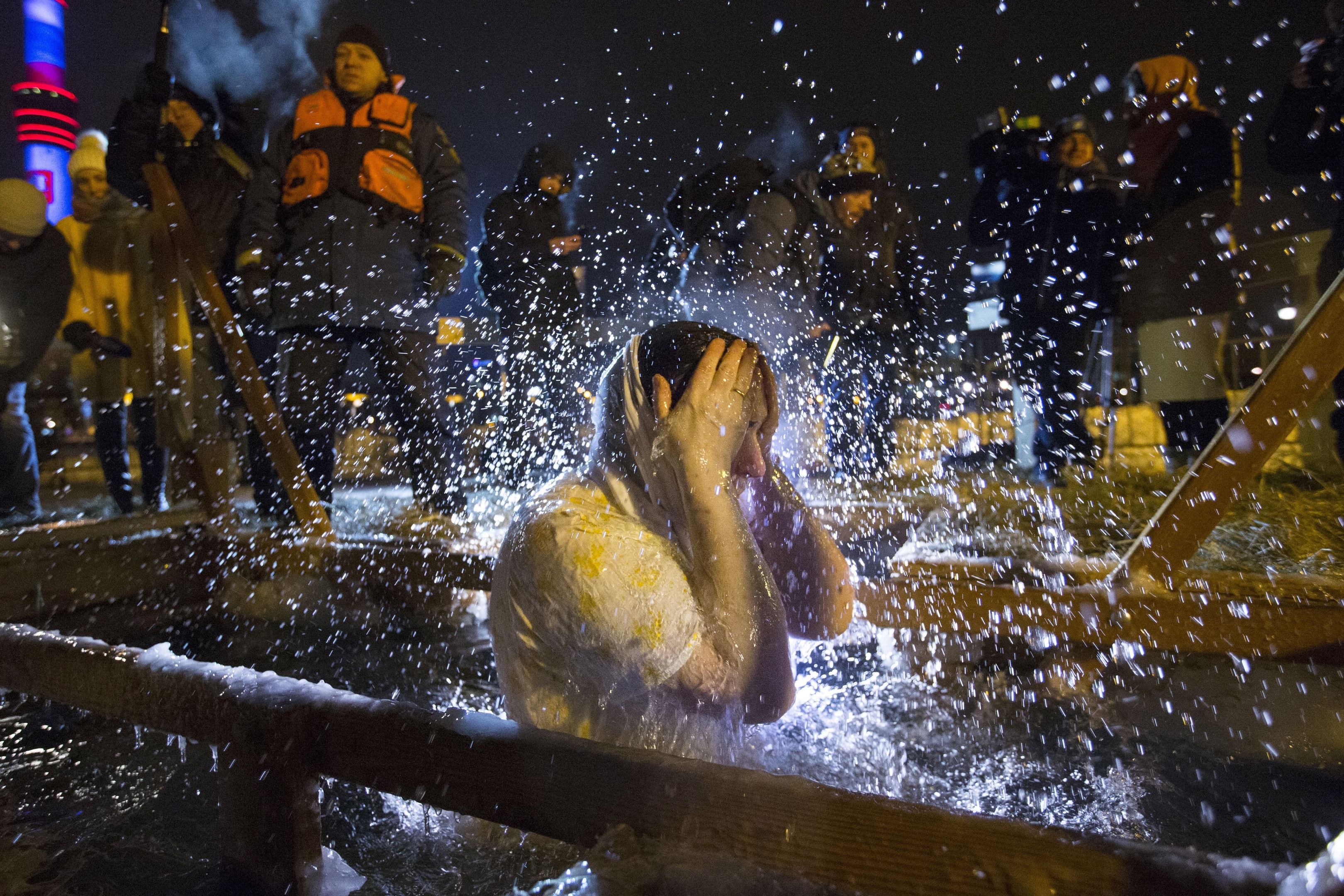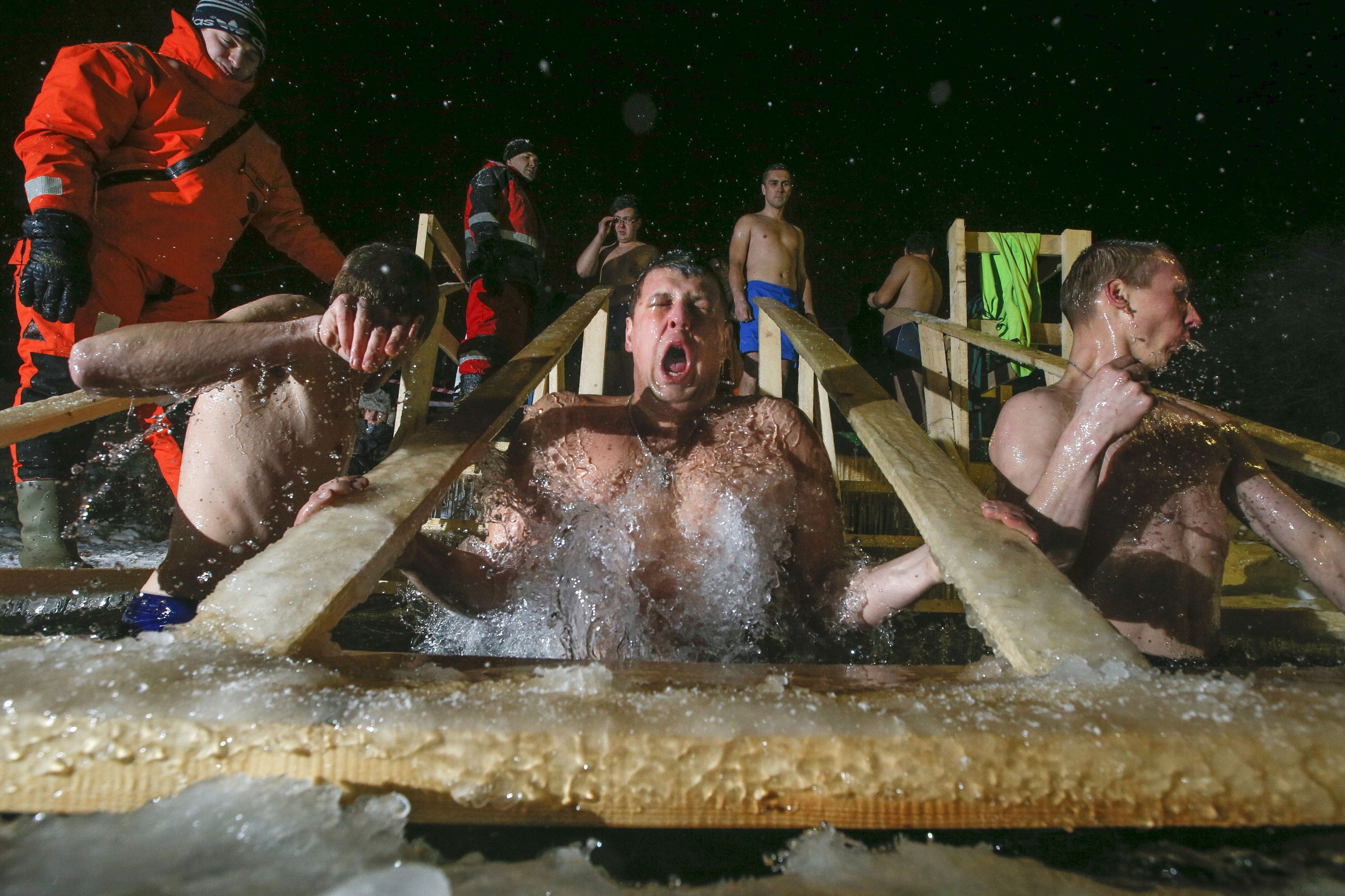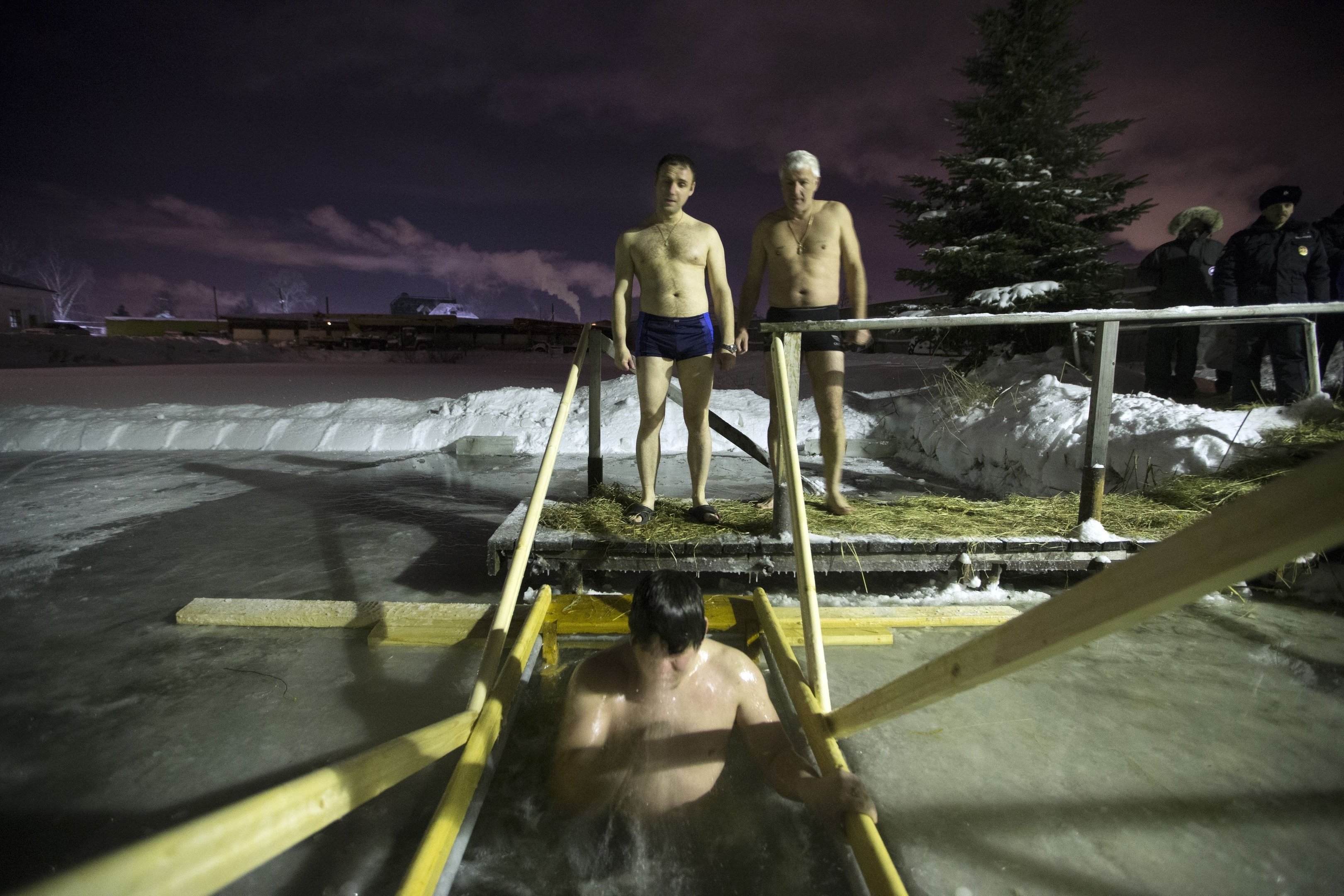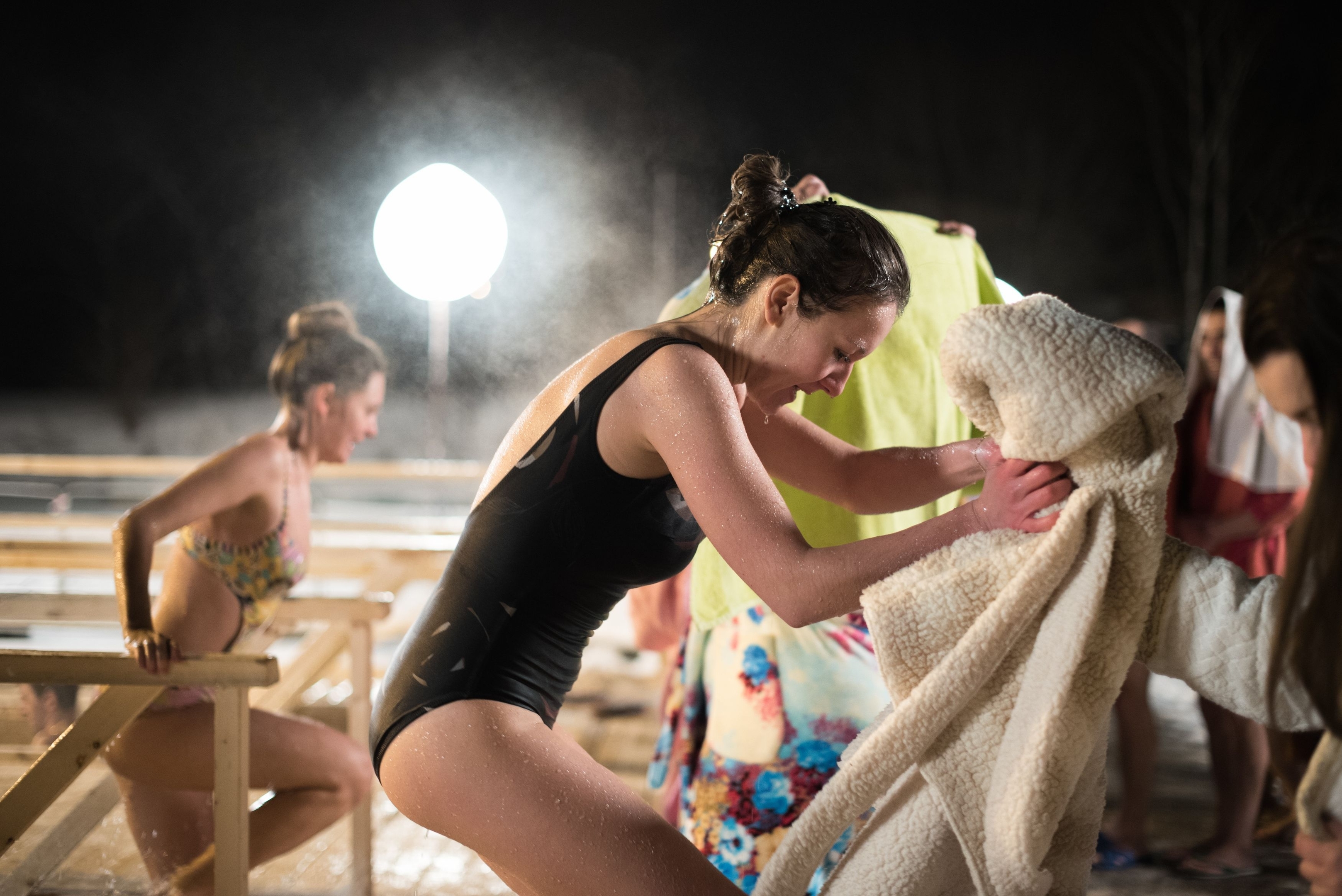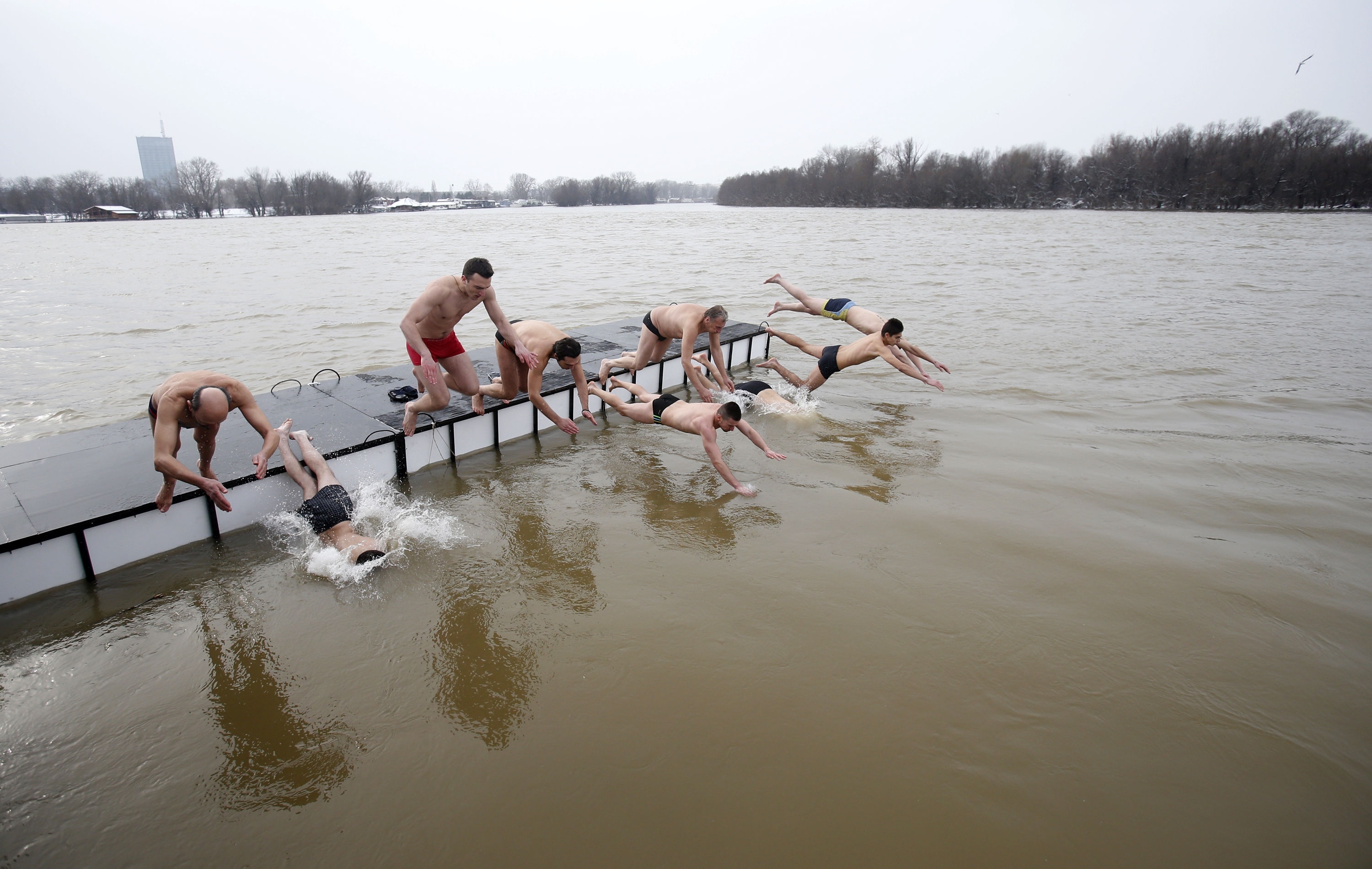The Epiphany, celebrated in Russia on January 19, marks the baptism of Jesus in the Orthodox Church. As elsewhere in the Orthodox world, the Russian Church conducts the rite of the Great Blessing of the Waters, also known as “the Great Sanctification of the Water” on that day (or the eve before).
Participants in the ritual may dip themselves three times under the water, honoring the Holy Trinity, to symbolically wash away their sins from the past year, and to experience a sense of spiritual rebirth. Orthodox priests are on hand to bless the water, and rescuers are on hand to monitor the safety of the swimmers in the ice-cold water.
Others limit their participation in the Epiphany rites to those conducted inside churches, where priests perform the Great Blessing of Waters, both on Epiphany Eve and Epiphany (Theophany) proper.
The water is then distributed to attendees who may store it to use in times of illness, to bless themselves, family members, and their homes, or to drink. Some Russians think any water – even from the taps on the kitchen sink – poured or bottled on Epiphany becomes holy water, since all the water in the world is blessed this day.
In the more mild climate of the southern city of Sochi meanwhile, where air and water temperatures both hover in the low to mid 10 degree Celsius range (50 degrees Fahrenheit) in January, thousands of people jump into the Black Sea at midnight each year on Epiphany and begin to swim in celebration of the feast
